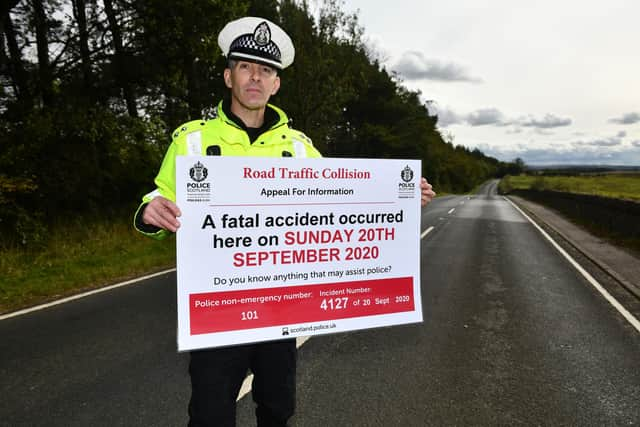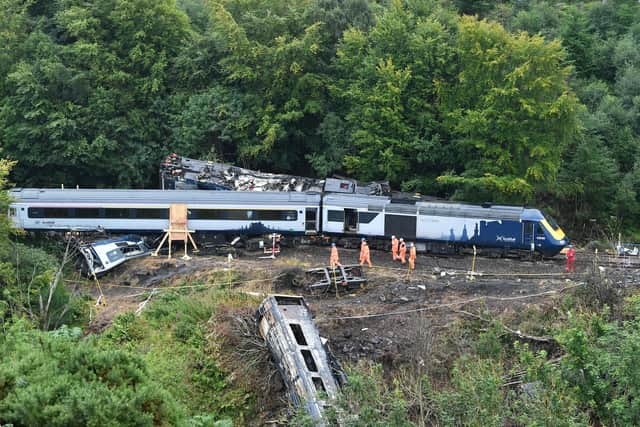A road collision investigation branch could finally provide answers about motoring deaths - Alastair Dalton
Two decades ago, fatal rail crashes in Britain happened nearly every year, but since then safety has significantly improved and last year’s Carmont derailment was the first in which people were killed on a train since 2007.
Air crash deaths globally are also on a downward trend, with a total of 137 in 2020, the lowest for three years, according to data firm Statista.
Advertisement
Hide AdAdvertisement
Hide AdIt’s a sobering thought that there were more deaths than that on Scotland’s roads alone last year, even with Covid lockdown restrictions reducing the total to a record low of 142 compared to 166 in 2019.


The Scottish Government has set itself a challenging goal of reducing road deaths and serious injuries to zero by 2050 and Scotland to have the “the best road safety performance in the world”.
It’s absolutely right to set such targets when more five to 30-year-olds die on our roads than from any other cause.
However, understanding the causes of such fatalities is a source of ongoing frustration because police and other official investigations are generally not made public unless there is a court case or fatal accident inquiry (FAI).
By contrast, details of every air crash, however minor, are included in reports published by the UK Department for Transport’s air accidents investigation branch, originally established as part of the Royal Flying Corps as long ago as 1915.


Similar bodies investigate serious rail and marine incidents, whose findings are also made public.
The situation means that I might report on a fatal car crash and never be able to find out why it might have happened, if no one was charged or it was not deemed worthy of an FAI.
Every death on the roads rightly receives widespread media coverage, but in many cases we never discover what happened.
Advertisement
Hide AdAdvertisement
Hide AdWere those involved wearing seatbelts? Was the driver drunk or high on drugs? Or were they travelling too fast, distracted by a mobile phone, or simply failed to see the danger?
But if someone was to die on the railways, in the air or at sea, I’d have so much information available from the official reports, the challenge would instead be understanding the minute technical detail and industry jargon they contain.
However, there is now the promise of a degree of change with the UK Government’s little-reported proposal last month to launch a road collision investigation branch, which it said would operate in a similar way to its sister bodies.
As well as carrying out “thematic” investigations into crashes, it would also “probe specific incidents of concern to establish the causes of collisions and make independent safety recommendations”.
The move had been urged for years by road safety bodies such as Brake, and campaigners like former Highlands and Islands Labour MSP David Stewart.
Motoring group group the AA described it as “long overdue”.
Not every crash would be investigated because, alas, there are still far too many, but having a body publishing reports and making recommendations could be a major step towards more openness in this key area.
A message from the Editor:
Thank you for reading this article. We're more reliant on your support than ever as the shift in consumer habits brought about by coronavirus impacts our advertisers.
If you haven't already, please consider supporting our trusted, fact-checked journalism by taking out a digital subscription.
Comments
Want to join the conversation? Please or to comment on this article.
